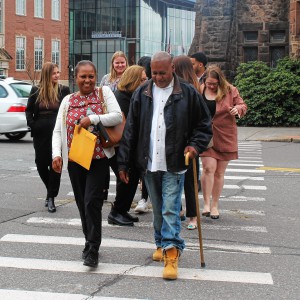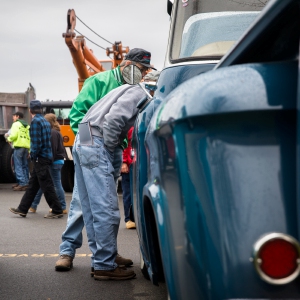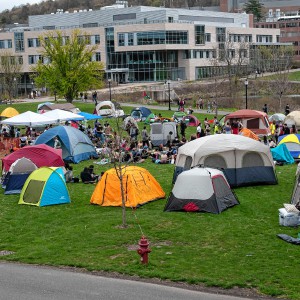Local activists urge Legislature to form commission to study threats of nuclear weapons, climate change
| Published: 06-12-2023 7:01 PM |
Pioneer Valley peace activists and others urged a joint legislative committee Monday to pass a bill with strong local support that would establish a special commission to investigate the existential threats posed by nuclear weapons and climate change.
The bill — H.738 in the House and S.1488 in the Senate — was filed by Rep. Lindsay Sabadosa and Sen. Jo Comerford, both Democrats of Northampton.
Sabadosa told the Joint Committee on Emergency Preparedness and Management that the bill simply creates a commission to look at the state’s role in the production and storage of nuclear weapons, and explore ways in which it could redirect those resources into climate-conscious technologies. The bill is being refiled this session, having received a favorable report but no vote from the full chamber last session.
In his testimony, Northampton physician Ira Helfand, a Nobel Peace Prize winner for his work with the International Campaign to Abolish Nuclear Weapons, drew a stark connection between nuclear weapons and climate catastrophe, saying climate changes are increasing conflict and making the outbreak of nuclear war more likely. Even a limited nuclear war, he said, would in turn cause climate disruption and widespread famine.
Committee member Rep. Paul Frost, R-Auburn, earlier questioned how the state Legislature could be involved in regulating nuclear weapons production, unless it was to ban weapons manufacturers from doing business here, in which case they would simply move somewhere else. He pushed back against the notion that nuclear technology is not needed for U.S. national defense when potential enemies continue to develop their own capabilities.
Helfand countered that a state commission would have a role to play in mobilizing action at the federal level, saying the elimination of nuclear weapons everywhere is urgent and essential.
“This committee is charged with assuring preparedness,” he said. “We have to focus on prevention.”
Jonathan King, a professor of molecular biology at the Massachusetts Institute of Technology and chair of the board of Massachusetts Peace Action, linked the lack of preparedness for the COVID-19 pandemic to the oversized slice of the budget pie that is consumed by the military budget compared to the money directed to alleviating disease.
Article continues after...
Yesterday's Most Read Articles
Timmon Wallis of Northampton, representing the Warheads to Windmills Coalition, said numerous municipalities have passed resolutions in support of the bill.
“We’re just asking for a study to be done,” he said.
Cole Harrison, executive director of Massachusetts Peace Action, noted that the organization was formed in 1957 as the Committee for a Sane Nuclear Policy. With nuclear-armed countries continuing to amass warheads and the cancellation of arms control treaties, the danger is greater than ever, he said.
The Doomsday Clock, which symbolically measures how close the world is coming to calamity as gauged by the science and security board of the Bulletin of the Atomic Scientists, was reset in January to a record 90 seconds before midnight, largely due to the war in Ukraine.
Harrison and others noted the prominence of nuclear weapons manufacturers in Massachusetts, including Raytheon, which he said is developing a nuclear-armed cruise missile, and Draper Laboratory in Cambridge. Additionally, Hanscom Air Force Base is home to the nation’s nuclear command, control and communications program executive offices.
Kathleen Hamill, of the nonprofit Mothers Out Front, contended that the commission would not just be “studying what we already know needs to be done” on climate change, as committee Chair Sen. Marc Pacheco, D-Taunton, had suggested. Rather, Hamill said, the commission would provide an opportunity to bring together the state’s significant brain power to propose better solutions linking the climate crisis and nuclear weapons.
“We could lead the country in transitioning jobs from nuclear weapons production to green technologies,” Lynne Hall said at the hearing.

 Former Greenfield man granted new trial after 1995 murder conviction, walks free
Former Greenfield man granted new trial after 1995 murder conviction, walks free PHOTOS: Making an impression
PHOTOS: Making an impression Antique pickup trucks to vintage tractor trailers on tap for 19th annual show in South Deerfield
Antique pickup trucks to vintage tractor trailers on tap for 19th annual show in South Deerfield Pro-Palestinian protesters set up encampment at UMass flagship, joining growing national movement
Pro-Palestinian protesters set up encampment at UMass flagship, joining growing national movement
